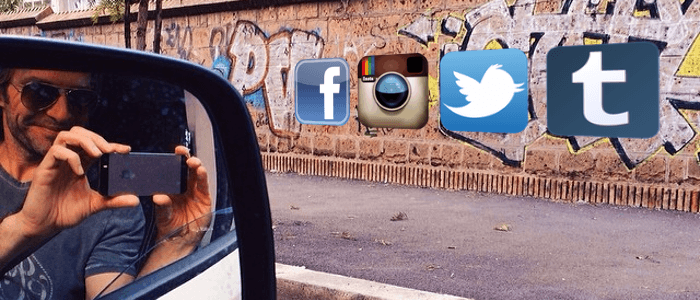With 161,000 “Likes” on Facebook, 55,200 followers on Twitter, 37,400 subscribers on YouTube, and almost 6 million views of his videos, you might not expect all this success to belong to a composer and conductor of choral music. But it does.
Eric Whitacre, the genius behind the Virtual Choir—the YouTube sensation that blew up the internet—is an extremely gifted and inspiring composer. His works have been published and recorded by groups the world over. He is in very high demand, composing commissioned works, conducting performances, and presently serving as Composer in Residence at Cambridge University in the UK.
There are many gifted and talented composers in the classical world. At the same time, such composers don’t have anywhere near the “rock star status” Mr. Whitacre enjoys. Even more remarkable is that despite classical music’s waning popularity in America (according to Slate.com, only 2.8 percent of albums sold in 2013 were of the “Classical” genre), Whitacre has achieved what most classical composers dream of: Making a living from doing what he clearly loves. (He even laughs about Slate’s claims in his blog)
What is it, then, that Whitacre does to keep himself so popular and relevant in an art form that doesn’t seem to have traction?
When Eric Whitacre describes his love of choral music, he refers back to his childhood to when he sang Mozart’s Kyrie in his high school choir. By his own admission he joined the choir to meet girls, yet upon participating in his first rehearsal he was taken by the beauty of the music, but moreover by the sense of feeling like he was a part of something larger than himself. Today, this remains his mission: To create music and experiences to remind people that they are all part of something larger than each individual.
With the aid of social networking, we are all reminded of how true it is that we are all part of a greater world. Facebook, Twitter, YouTube, Instagram… they have made the world smaller for many: Old friends have become reacquainted; lost family members have been found; cursory or transient relationships have found new life. Our chorus of Tweets and Updates is a messy noise lost in the white noise of the internet, but when properly orchestrated, with focus and purpose, a dissonant multitude can come together and create meaning—and even glorious music.
This is literally what Eric Whitacre did when he conceived the idea of his Virtual Choir. Having been inspired by Britlin Losee, a young girl who made a video of the soprano part of one of Eric’s songs, he took to his social media outlets and arranged for his fans to record the choral parts of his composition, “Lux Aurumque.” Such a thing had never been done on such a large scale, and the phenomenon now known as the Virtual Choir is on its fourth iteration, with more promised in the future.
Mozart, Beethoven and Bach—none of them had the benefit of YouTube or Twitter. But they lived in an age when the music they created was considered “popular.” Today, if one composes outside of the popular idiom, one can rely on innovations like the Virtual Choir to draw attention to fine art.
However, what Eric Whitacre does with social networking goes beyond spectacle. In fact, the Virtual Choir was much less about innovation and much more about helping disparate people from around the globe get together, to remind them and us that each member of the human family is part of something larger than any one of us. This is the power music has. It is also the power of human connection that Whitacre understands.
Here are some reasons why Whitacre is so adept at social networking:
1) He shares organic and original content
There are a lot of marketing experts out there claiming to help people with their social networking advertising their products and services. These marketers supposedly understand how people scan and consume social media, and have formulas or “tricks” to get viewers engaged. The problem is that if businesses are all hiring these marketers using the same or similar tricks, how effective can they really be?
The content that gets shared the most is that which is insightful, interesting and created by the experts in their respected field, and not by self-proclaimed social network experts who are not steeped in the industry or field businesses are concerned with. Eric is already an accomplished composer and conductor. He may have an editor, but you can tell from his live interviews that something is in his actual voice and not a surrogate.
2) He connects with people
Social networking is a two-way street. A lot of people seem to think that if they tweet and post, they’ll build an audience. It’s much more about engagement.
Consider this: If you’re a fan of a celebrity who posts and tweets about said celebrity, wouldn’t you like to know if he/she hears your appreciation? Better still, wouldn’t you just absolutely love to get a personal note or mention from your idol? It doesn’t take a lot of effort to engage one’s audience, and the net return on investment of such an action is remarkable.
Case in point: I’m a fan of Whitacre’s. I think his music is really powerful and moving. But I am so much more moved every time I post on his Facebook page or Tweet @ericwhitacre how he actually replies to me! To be sure, I know that there are many celebrities out there who have dedicated individuals monitoring and posting on their behalf. But if one follow’s Eric’s social media closely, it becomes clear to see that it is he himself creating the content. He humanizes himself when he engages his followers. This makes him more real and it connects his fans to his work in real and human ways. He makes the social aspect of social networking connected and personal.
He even responded to my question on Facebook in his video (great pronunciation of my name, by the way!):
3) He has something to say
Most of what is on Facebook and Twitter today is not unique. Much of the time, we are reading reposts and retweets. To quote the Talking Heads, “You’re talkin’ a lot, but you’re not saying anything/When I have nothing to say, my lips are sealed/Say something once, why say it again?” Effective social networking includes something to say, not saying things for the sake of saying things.
Eric’s posts on his blog are on point: They are about composition, his career, his struggles and triumphs. But his Twitter and Facebook accounts are more about brief updates, fun moments from his life, photos, jokes… it gives his fans a real view into his personal life. People are interested not solely because of who he is, but because he has something to say. It’s the same reason people are attracted to his art: The music has something distinctive and meaningful to say. He is also sure to transmit his content through the best forums for such content: His blog is filled with content-rich posts with great detail. His Facebook and Twitter accounts are more concerned with shorter anecdotes and quips. In either case, when he says something, people have learned to pay attention because he is thoughtful and mindful to post engaging things.
5) He’s real
Whether a celebrity, a personality, or the “rest of us,” we all put our pants on one leg at a time. We’re each human, we each have our strengths and our weaknesses… the question is whether we choose to admit to such humanity or not. Some celebrities elect to hide from the limelight, and we respect their privacy. Yet others choose to live in the spotlight and give off the impression that somehow they are larger than life.
No one is “larger than life.” Neither is anyone “smaller than life.” We are all living and feeling people. So is Mr. Whitacre.
He shares his failures with pleasure in front of audiences and classrooms. He laughs about his mistakes. I remember reading a blog post he wrote in 2009 about his thoughts on composer competitions. I’m a modest composer myself and was interested in his take on the benefit of entering such contests. He thinks the endeavor worthwhile, but even so, he entered a hundred competitions and never won a single one. Not one! His motto has become “Fail big. Fail often.”
He reminds us that our human experience makes us better artists. Our struggle for greatness pushes us towards creativity. And he’s willing to hold himself up as the example of how to succeed and fail.
In November, 2013, Whitacre gave a talk at The Marketing Society in the UK where he talked about “inspiring creativity via the web.” In that talk, he talked about writing music and striving to find a simple idea (he calls it a “golden brick”) to become the seed of a new composition. He goes on to say:
“When you start with that simple idea, and the form follows function, and you wind up with one of these beautiful, organic, universal forms, people can feel it. They don’t understand why.”
The same holds true with social media and networking. When we share simple but thoughtful ideas, and the form follows the function, our followers can feel it. They don’t understand why. I believe it’s because when we share thoughts that reveal our humanity, it touches us. And then when we reach out beyond ourselves to those who are interested in us—engage with them and listen to them—we become more of one larger, human family.





